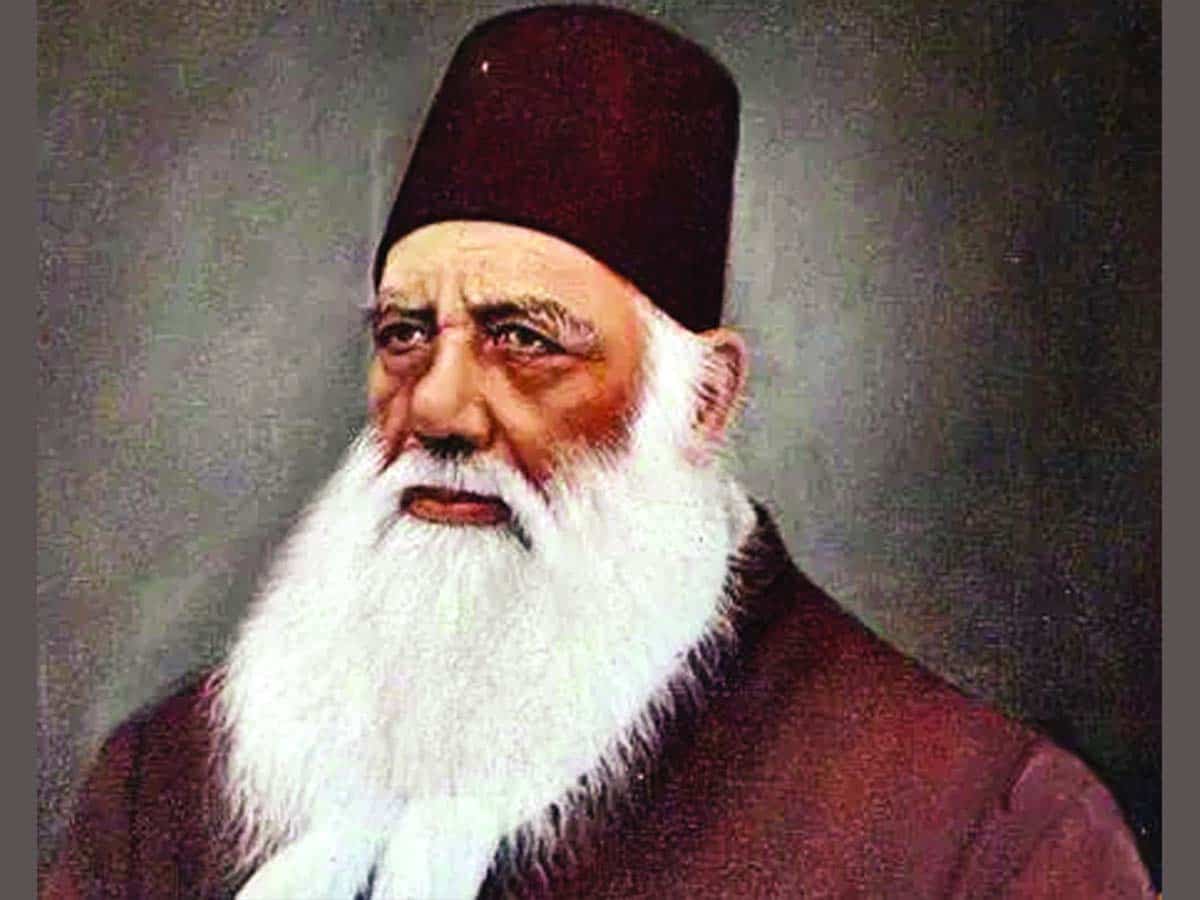
Sir Syed (1817-1898) was rarely recognized beyond being the founder of the Aligarh Muslim University. It is hardly known that his narrative of reason, set about more than 150 years ago, can sap the current storm of suspicion, intolerance, and pseudo-religiosity that threatens to sweep us off our feet.
Sir Syed was the first Muslim public intellectual of nineteenth-century India who espoused a way of life that drew on cultural pluralism. His canny interpretations betray a nuanced story of the ideological and social cross-current of colonized India. He tried to boot out the sectarian attitude that fostered an obscurantist point of view. For him, sentimentalism is neither beneficial for the individual nor for the community.
Protest narrative
Sir Syed, a prolific writer, produced a subtle protest narrative against the blind adherence to ancestral beliefs, hatred, discrimination, and intolerance. His considered opinion on many thorny issues punctuated with an abiding concern for human dignity still looks pertinent in the fragmented world we live in. His views on blasphemy which has now become the most dreadful weapon to stifle dissent, bears a testimony to the fact.
Contrary to the popular narrative on blasphemy that considers it an unpardonable act and the offenders must be made to pay with their life, Sir Syed takes an alternative position while discussing the issue of denying or ridiculing the widely held religious beliefs, holy books and highly venerated personalities. It was the issues that surfaced frequently in the last three decades of the 19th century. In 1861, William Muir’s book on the prophet of Islam “A Life of Mahomet and History of Islam to the Era of Hegira” rocked the Muslims and again in 1873 the publication of the translation of a Persian book led to the violent clash between the Muslims and the Parsis.
The book rendered into Urdu by a Parsi was allegedly filled with several disparaging remarks about the Prophet. In 1884, the Muslims raised serious objections to the book “Establishment of the British Rule in India” that was included in the syllabus in Allahabad. The book contained several derogatory and unsavoury remarks against Islam. This aside, a couple of times more the issue of profanity got on Sir Syed’s mind. Sir Syed wrote a rejoinder to William Muir’s book and published three editorials in his multilingual newspaper, The Aligarh Institute Gazette on blasphemy.
Don’t be swayed by emotions
Sir Syed exhorted his coreligionists not to be swayed by emotions as the everlasting answer to the profanities-filled books lies in writing back and not clamouring for a bounty haunt. Boisterous protests for banning and burning the book and unleashing violence are in no way connected with Islam. Muslims must not seek vengeance on behalf of the Almighty or His messenger. For him, vengeance is essentially a diabolic act, and attributing this to the Almighty is itself an act of sacrilege. Blasphemy does not call for a hasty violent reaction and the clinching answer to the argument is producing a dispassionate and logical rejoinder and nothing else. In 1873, Sir Syed wrote an editorial titled, “Religious Riot in Bombay” when Bombay was rocked by a series of violent clashes between the Muslims and Parsis.
Sir Syed pointed out that a violent confrontation occurs when a community deliberately derides the beliefs of other communities. The sense of religious superiority is not grounded in the tenets of faith and it only manifests the jaundiced vision of the religion. The religion enjoins its followers not to speak or write against other religions. If any published work or utterance leaves one community hurt, it may either write a rejoinder or seek constitutional remedy. Winding up his argument, Sir Syed says: “One must try to tell the issue by himself. The government must take notice of such a nasty book. The newspapers must not be allowed to give space to religious debate in intemperate language and the publication of provocative articles should be treated at par with the provision of the Sedition Act.
The bogey of blasphemy must not be allowed to unleash mindless violence. The issue cannot be settled through street protest as it never offers a solution. Attempts to ridicule the beliefs of others reveal a strong desire to seek sadistic pleasure in the guise of religious supremacy. Blasphemy needs to be remonstrated with the logical rebuttal and noisy agitation will be completely unavailing”.
Clear-eyed views
Sir Syed’s clear-eyed views on blasphemy are invested with the tremendous potentiality of solving the vexed issue of profanity that surfaces in countries where a substantial number of Muslims live. In India too, it is a vital issue and one must pay heed to the remedy suggested by Sir Syed who made it clear that blasphemy should not be used as a ruse to unleash violence.



